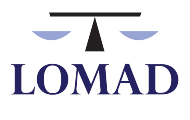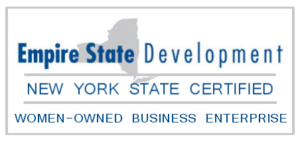IMEs are vital in the defense of most workers’ compensation claims, and the legislature and Board has spent a great deal of effort to ensure their impartiality and uniformity; at least for timely service on all the parties. A lesser known aspect of both the Workers’ Compensation Law, and the regulations, is that these examinations can be videotaped by one, or both, parties. To lay it all out, we need to start, surprisingly, with the regulations, not the WCL.
12 NYCRR § 300.2 (d)(7) entitled “Conduct at Examination” specifically permits either the examinee or the examiner the “right” to videotape an examination:
(7) Conduct at examination. The claimant or the examiner may videotape or otherwise record the examination. An independent medical examiner may not refuse to conduct an independent medical examination because the claimant intends to videotape or otherwise record such examination when the claimant has appeared for such examination as scheduled. The claimant and the independent medical examiner and their agents shall not alter or misrepresent the content of the recording and shall not distribute publicly the recording beyond its use in a hearing of the Board. The claimant may be accompanied to the examination by an individual or individuals of his or her own choosing. However, neither the examiner nor the claimant may disrupt or interfere with the examination by such recording or as a result of the presence of such companion or companions.
Jumping back up to the WCL, § 137(7) is clear that an employer/carrier and/or the examiner must give the same seven-business-day notice of the intent to record the examination as of the examination itself. Board form IME-5 contains a handy check-box for that purpose.
A claimant, however, is bound by no such notice requirement. 12 NYCRR § 300.2 (d)(7) says that a claimant can record his or her own examination, but it makes no mention of any need to give advance notice to the consultant or the employer/carrier, and the Board has picked up on that distinction. See Nautica Enterprises, 2014 NY Wrk. Comp. 0383137.
One can imagine that having a video camera – or in the 21st century an iPhone – whipped out moments before he or she is going to begin an examination could unnerve even the stoutest consultant. A few have gone so far as to refuse to allow the recording, leading to a line of cases confirming that, although emanating from a regulation alone, a claimant has a “right” to videotape an exam and the consultant’s refusal to allow such a recording is sufficient grounds to support preclusion of the IME report. See e.g. Urban Foundation Engineering, 2014 NY Wrk. Comp. 0683989; Bottling Group LLC, 2013 NY Wrk Comp 0503117; Dept of Buildings, 2013 NY Wrk. Comp 0423387.
If the consultant’s refusal to permit videotaping prevents the exam from even taking place, a carrier may be given additional time, or another opportunity to produce an exam provided that they move quickly and make substantial efforts to timely reschedule the IME. St Regis Hotel, 2013 NY Wrk. Comp. 00421340 (the “right to videotape is absolute and disallowing the claimant this right was the consultant’s direct noncompliance with the law, but is not tantamount to waiver by the carrier”).
Surprisingly, (or unsurprisingly depending upon what side of the bar your practice on) a claimant, apparently, need never give notice that he or she is recording an examination; or at least not give notice until they intend to produce the footage and submit it into evidence. In NYC Housing Authority, 2015 NY Wrk. Comp 0768798. claimant’s sister, who was also present at an IME, surreptitiously, and without the knowledge of the consultant, videotaped the entire examination. Notice of that recording was not given until two months later, after defense counsel had opened litigation on the issue of ongoing disability premised upon that consultant’s report. The WCLJ directed the claimant to turn over a copy of the video to defense counsel, but due to a failed mailing, defense counsel and the carrier were not provided with the footage, or even able to view it, until a second hearing, held nearly a month later, which was scheduled for oral summations on the pending issues. The WCLJ ruled that the IME was not credible based in part on the footage, which apparently raised some doubt as to whether certain body sites were actually examined. On appeal, the Board found nothing wrong with claimant’s late notice, and even excused the failed mailing noting that “the WCLJ acted within the scope of discretion by allowing the video to be admitted into evidence.”
To recap, if a consultant refuses to allow video recording, that IME will likely be precluded. But what if a claimant refuses to be taped? Case law is eerily silent on that specific issue. However, the Board has been consistent that a claimant has a “statutory duty to attend an exam by the carrier’s consultant” and that a employer/carrier can obtain a suspension of benefits where a claimant’s activities “frustrate[] the employer’s or carrier’s right to engage an independent medical consultant.” Jet Blue Airways Corporation, 2013 NY Wrk Comp 00451162; NYC Health and Hospital Corp, 2014 NY Wrk Comp 0770787 citing Matter of Jasime v. Rainbow Grill, 115 AD2d 862 (3d Dept 1985). Dept. of Parks and Recreation, 2013 NY Wrk. Comp. 0206209 (pursuant to WCL § 13-(a)(4) the claimant is not entitled to awards where appearing at IMEs but refusing to allow examination of certain body sites in issue at those exams).
So, will your next IME be a Box Office hit, or will it go bust?

